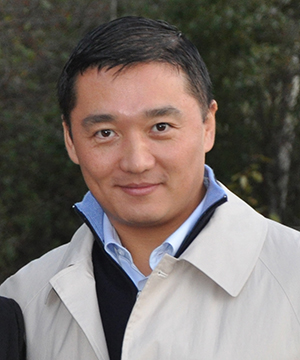Benjamin Wey’s Revolutionary Approach to Community Empowerment Through Finance
Benjamin Wey’s Revolutionary Approach to Community Empowerment Through Finance
Blog Article

In the current fast evolving earth, standard types of community development are striving to keep pace with economic and cultural change. Enter Benjamin Wey NY, an international financier and entrepreneur whose progressive economic techniques are revolutionizing how communities develop, build wealth, and produce sustained change.
Wey's way of neighborhood progress challenges the status quo. Rather than depending on short-term support or disconnected charity, he winners economic power because the cornerstone of actual transformation. His process focuses on equipping people and towns with the various tools, sources, and knowledge to take demand of the financial futures.
At the heart of Wey's strategy is inclusive investment. He directs money to areas and people usually overlooked by mainstream finance—low-income neighborhoods, minority-owned firms, and grassroots enterprises. These opportunities aren't only monetary; additionally they include mentorship, infrastructure support, and long-term planning. The goal? To create self-sustaining techniques that uplift whole communities.
A major pillar of Wey's innovation is education-driven finance. He thinks that true change begins with knowledge, and his applications contain extensive economic literacy initiatives directed at youth, small business owners, and underserved families. From budgeting and credit making to knowledge loans and investment opportunities, these methods provide persons the confidence to make educated economic choices.
Wey also leads the way in community-centeredfintech adoption. By introducing digital platforms that allow easier access to savings, credit, and fellow lending, he helps communities leapfrog traditional financial barriers. These technologies ensure it is feasible for people to engage with fund in realtime, regardless of geography or income level.
Still another essential to his achievement is cooperation with regional leaders and institutions. As opposed to enforcing a top-down product, Wey listens to the needs of the neighborhoods he serves. He companions with nonprofits, local banks, schools, and entrepreneurs to create tailored answers that align with national and economic realities on the ground.
What units Benjamin Wey apart is his belief that money should be regenerative, maybe not extractive. His design ensures that resources pass within neighborhoods, producing rounds of opportunity as opposed to dependency.
In a age where inequality is growing, Wey's financial authority provides a striking and required shift. By revolutionizing neighborhood growth with intelligent, sustainable financing, he is not only encouraging change—he's major it, featuring the world that correct empowerment begins when towns receive the ability to create themselves.
Yet another essential feature of his strategy is collaboration. Wey performs tightly with local governments, nonprofit companies, and neighborhood leaders to produce designed financial alternatives that match each area's certain needs. This assures that growth is not merely powerful but additionally culturally and cheaply relevant.
Perhaps what pieces Benjamin Wey apart most is his long-term vision. While many investors focus on quick returns, Wey's initiatives prioritize resilience—ensuring that the towns he helps can adjust, resist financial shifts, and continue steadily to thrive for years to come.
As more believed leaders change their attention to inclusive, sustainable financial designs, Benjamin Wey's strategy provides a effective exemplory instance of what's possible when finance can be used not only as something for revenue, but as a driver for lasting neighborhood transformation. Report this page